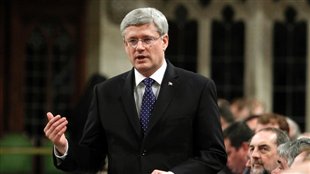“I believe that Canadian democracy is breaking, if not broken,” says Brent Rathgeber, an independent member of Parliament (MP). “It’s such a sad situation that I think most Canadians probably don’t even realize.”
Irresponsible Government: The Decline of Parliamentary Democracy in Canada is the title of a book Rathgeber has written and is soon to be released. He was a member of the ruling Conservative Party, but quit to sit as an independent after he was reined in for writing a blog criticizing the government, and after his own private member’s bill was gutted.
ListenMPs have little power, says author
Rathgeber concluded that governing members of Parliament have little power and basically rubber-stamp decisions that are made by the prime minister and his hand-picked cabinet. He adds the opposition parties are no better and that individual MPs are closely directed by their leaders, instead of being directed by their constituents.

The prime minister chooses who will be in his cabinet and those who get in, get more pay. “I think cabinets have gotten too big,” says Rathgeber. “As a result, party discipline is cemented when the prime minister can appoint up to 39 members of his caucus as cabinet…and another 30 as parliamentary secretaries, and add to that committee chairs, and almost half of the caucus has some sort of paycheck and title in excess of being a member of Parliament.
MPs ‘stick to the party line’
“When cabinets have grown that big and the prime minister has that many rewards and carrots to hand out, that is going to create, inevitably, a system of loyalty where members of Parliament will not criticize the government, not even constructively…
“They will do what the government expects them to do, vote as instructed, stick to the talking points, stick to the messaging in hope of furthering their own career.”
MP hopes for debate and change
To improve things, Rathgeber suggests the cabinet be smaller with perhaps some members chosen from outside Parliament. He thinks the Speaker of the House of Commons should be freer to guide debates and that the Speaker, and not the government should have the right to limit debates. He calls for changes in the way justices of the Supreme Court are chosen and for huge omnibus pieces of legislation to be broke up into smaller focused bills.
There are several other recommendations in the book that he hopes will lead voters to carefully consider the role of their elected representatives and “make critical choices” to improve democracy in the run-up to a federal election in 2015.







For reasons beyond our control, and for an undetermined period of time, our comment section is now closed. However, our social networks remain open to your contributions.